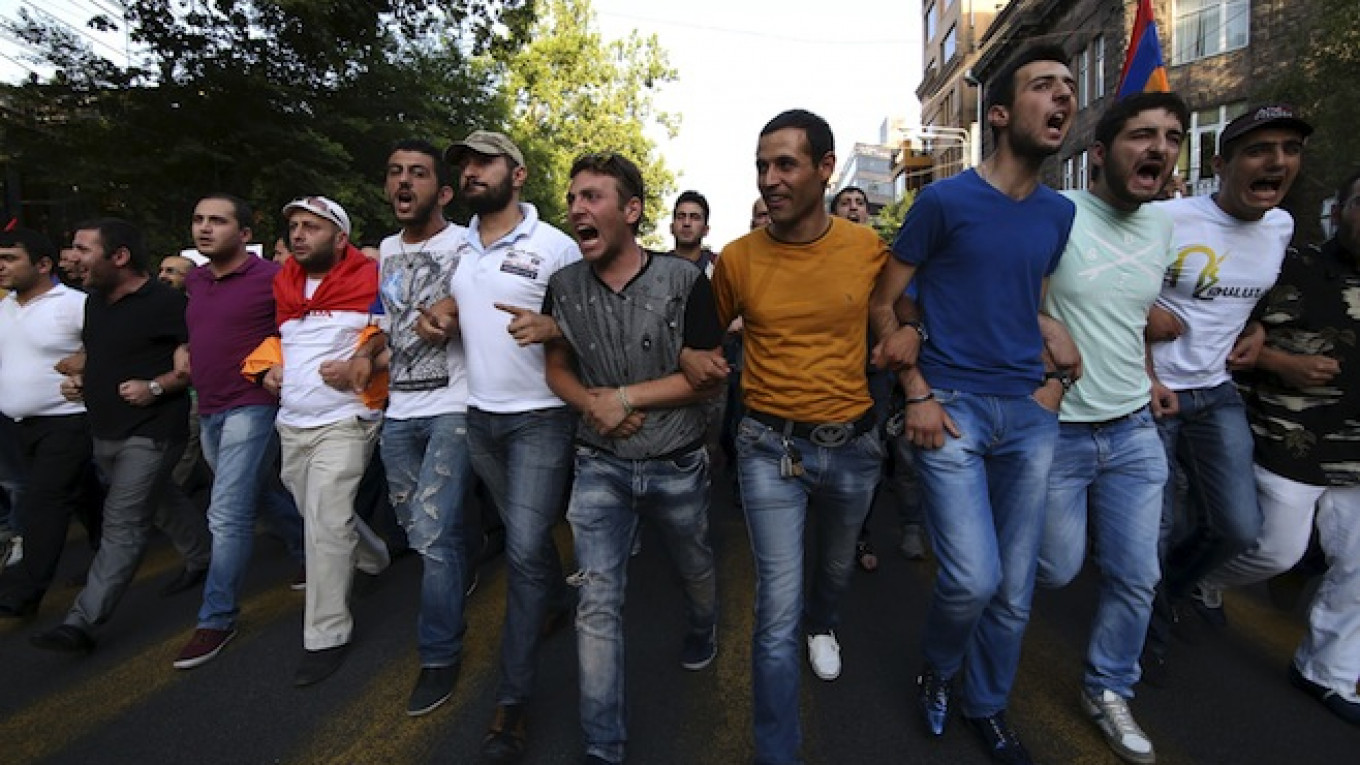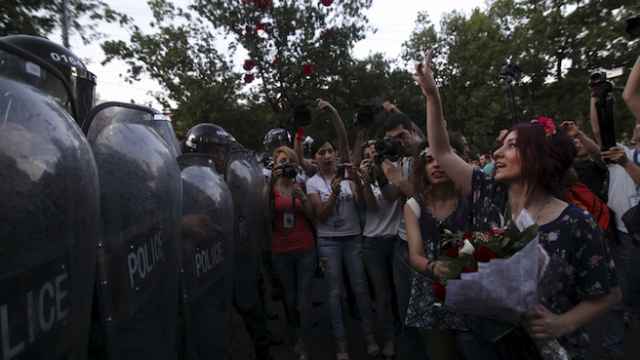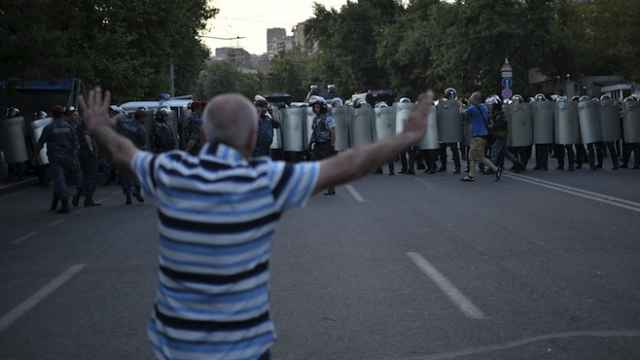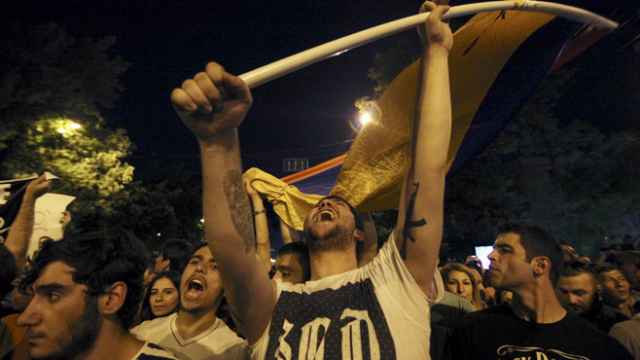MOSCOW/YEREVAN — In a veiled warning to the West, Russia cautioned on Thursday against any attempt to spark a new "colour revolution" in Armenia by exploiting protests against electricity prices for political ends.
Large crowds of mostly young people have been protesting in the Armenian capital Yerevan for more than 10 days, demanding the government scrap plans to raise the price of electricity for households.
Russia has been wary of unrest on its borders since governments fell in Georgia's 2003 Rose Revolution, Ukraine's 2003-04 Orange Revolution and Kiev's 2014 Maidan protests — events in which it says the West backed the protesters.
"You know how the 'colour revolutions', and the Maidan in Ukraine, started," Russian Foreign Minister Sergei Lavrov said at a BRICS Youth Summit gathering of young people from Brazil, Russia, India, China and South Africa (BRICS) in Moscow.
"The current developments in Armenia — there is also a temptation among many to use them to whip up anti-government sentiment although the root of these events is purely economic," Interfax news agency quoted him as saying.
"It seems useful for someone to go further and develop these processes in a political way."
Lavrov said that the West in particular was paying increasing attention to the role of young people in shaping national agendas, including through "peaceful protest."
His comments were the closest any senior Russian official has come to suggesting the West may have or be seeking a role in the protest in Armenia, which hosts a Russian military base, to pull it further out of Moscow's orbit.
Fear of Color Revolution
Thousands of protesters have been gathering every evening in Yerevan though their numbers dwindle during the day. Police tried to disperse them with water cannon early last week but the protest continued and has been peaceful since then.
The protesters have ignored concessions offered by President Serzh Sargsyan, saying they want the price rise of up to 22 percent planned by the distribution company, a subsidiary of Russian firm Inter RAO, to be scrapped entirely.
The protesters have avoided chanting anti-government slogans, saying their demands are limited to the electricity price dispute, though many also complain about alleged corruption in Armenia.
"I think the process of these protests is largely over — or if not over, heading that way," Armenian political analyst Alexander Iskandaryan told Reuters in Yerevan.
But Russian leaders fear unrest in neighbouring states could encourage protests in Russia and President Vladimir Putin said last year that Moscow "should do everything necessary" to prevent such a "colour revolution" in Russia.
Armenia, in the southern Caucasus, was once part of the Soviet Union and its 3.2 million people have been hit hard by an economic downturn in Russia, its main ally and trading partner.
It is also part of the Eurasian Economic Union, a political and economic bloc set up by Moscow to try to match the economic strength of the European Union, China and the United States.
The Kremlin has said it is up to Armenia's government and the protesters to resolve the dispute themselves.
A Message from The Moscow Times:
Dear readers,
We are facing unprecedented challenges. Russia's Prosecutor General's Office has designated The Moscow Times as an "undesirable" organization, criminalizing our work and putting our staff at risk of prosecution. This follows our earlier unjust labeling as a "foreign agent."
These actions are direct attempts to silence independent journalism in Russia. The authorities claim our work "discredits the decisions of the Russian leadership." We see things differently: we strive to provide accurate, unbiased reporting on Russia.
We, the journalists of The Moscow Times, refuse to be silenced. But to continue our work, we need your help.
Your support, no matter how small, makes a world of difference. If you can, please support us monthly starting from just $2. It's quick to set up, and every contribution makes a significant impact.
By supporting The Moscow Times, you're defending open, independent journalism in the face of repression. Thank you for standing with us.
Remind me later.






